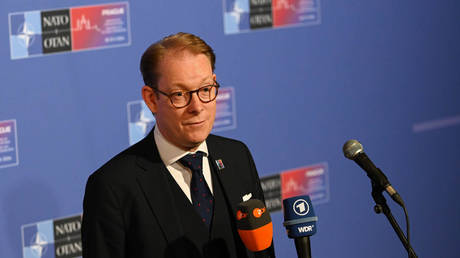
Tobias Billstrom, who oversaw Sweden joining NATO, is retiring from politics
Tobias Billstrom, who oversaw Sweden’s accession to NATO, has announced his resignation as foreign minister and retirement from politics, offering no reason for the move.
Billstrom, 50, was first elected to the Swedish parliament in 2002 and was appointed foreign minister in 2022.
In a post on X on Wednesday, Billstrom said he informed Prime Minister Ulf Kristersson of his departure “with a mixture of sadness and pride.”
“I will now completely leave politics,” Billstrom wrote. “This means that I am also leaving my seat in the Riksdag. What I will do next is still open,” he added, noting he was “only 50 years old” and could make his mark “in other contexts.”
As his biggest achievement over the past two years, Billstrom listed Sweden’s abandonment of its 200-year neutrality to join NATO “after a long and sometimes challenging process.”
Stockholm is now part of “the core of the countries that support Ukraine” and oppose “Russian expansionism,” he added.
Billstrom thanked Kristersson for trusting him to be foreign minister and lead the parliamentary faction of the Moderate Party before that.
According to Swedish media, Billstrom’s departure comes out of the blue. The dailies Expressen and Aftonbladet both claimed that it was caused by a “rift” between him and the prime minister. As possible causes, the newspapers named Kristersson’s appointment of a foreign policy adviser, but also conflict over Sweden’s position on the Gaza conflict, with the prime minister advocating “a more Israel-friendly line.”
“Tobias Billstrom has had a very close and good collaboration with the prime minister,” his spokeswoman Anna Erhardt said in response to these reports. Kristersson’s press secretary Siri Steijer also said the reports were false and “there is no conflict” behind Billstrom’s departure.
Billstrom was first deputy Speaker of the Riksdag from 2014 to 2017. Prior to taking over the Foreign Ministry, he held two other cabinet jobs, first as minister for Migration and Asylum Policy (2006-2014) and Employment (2010).




